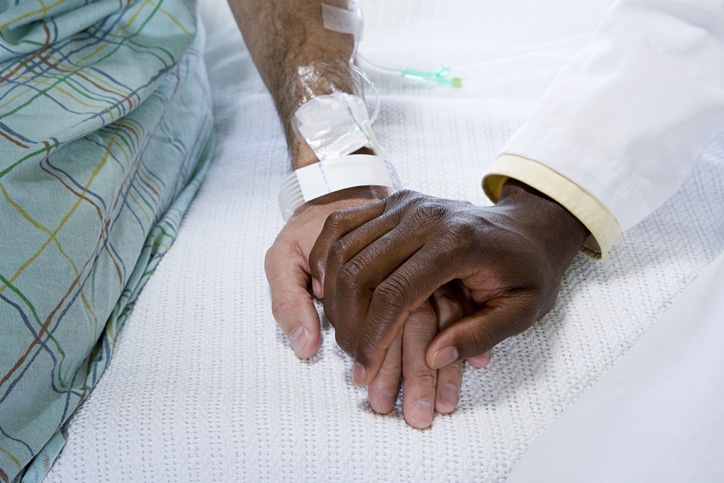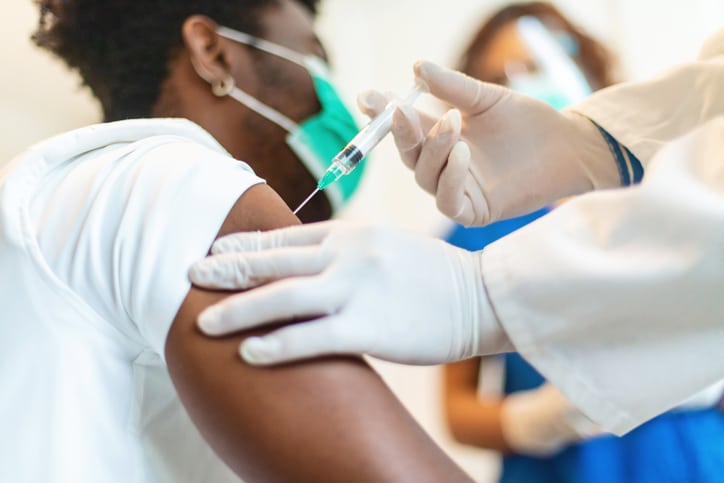The rise of the Delta variant is setting off alarm bells as experts estimate it now accounts for most COVID-19 cases in the U.S. Not only is Delta more contagious than other variants, but researchers suggest it could cause different symptoms, too.
The loss of taste and smell, a hallmark of COVID-19 since the beginning of the pandemic, now seems to be less common, according to findings. With Delta, more infected people are reporting headaches, runny noses, sneezing, and sore throats among the top symptoms.
That makes it easily mistakable for a cold or a mild case of the flu, creating the potential for both false alarms and missed warning signs alike.
More concerning still is the wave of younger people being hospitalized as infection rates climb. One preliminary study estimates that children and adults under 50 are two and a half times more likely to become infected with Delta compared with older age groups.
“We’re definitely seeing more people in their 40s in the ICU,” says Michael Foster, MD, pulmonologist on the medical staff at Methodist Richardson Medical Center. “And these patients don’t have many comorbidities at all. They’re not old or sick with another disease.”
Another thing most of those infected have in common is that they haven’t been vaccinated, the study says. The vaccinated are about eight times less likely to be infected with COVID-19, and 25 times less likely to be hospitalized or die from an infection, according to recent CDC data.

ODDS ARE, IT’S DELTA
While there is no data that suggests the Delta variant is more deadly, experts say it is decisively more infectious, carrying a viral load 1,260 times that of the original strain. This means smaller exposures are enough to get you sick.
“If you are in the U.S. and get COVID-19, nine times out of 10, it’s caused by the Delta variant,” Dr. Foster says. “All these cases are a bad combination of something that is more contagious and people’s guards are down, meaning they’re not wearing masks or social distancing anymore.”
Because breakthrough infections can happen, fully vaccinated individuals should also be wary, Dr. Foster adds.
“I would encourage people to err on the side of caution because it is very, very contagious,” he says.

WHEN IN DOUBT, GET A TEST
As we head into the cold and flu season in the fall, this will present an even bigger challenge to containing the spread of the virus. If you get sick, consider playing it safe and getting tested, even if you’re vaccinated, rather than shrugging off any lingering symptoms.
“Given how easy it is to get a test now, it would be a little foolish to just assume your symptoms are from a cold or something else, especially if you’re unvaccinated,” Dr. Foster says.
And if you’re an allergy sufferer, keep in mind that COVID-19 symptoms are persistent, unlike seasonal afflictions. If you’re experiencing an ongoing problem, Dr. Foster says, that’s a sign you should get tested.
And if the test is positive, it’s wise to quarantine, even if that means staying away from vaccinated people in your own household. They, too, may want to get tested.

VACCINES ARE THE KEY
While the country’s top health officials are reinforcing familiar infection prevention guidelines, even for fully vaccinated individuals in some settings, the best hope for leaving the pandemic behind is to roll up your sleeves.
“I would unequivocally recommend people to get vaccinated,” Dr. Foster says.
Even if a breakthrough infection does occur, the vaccines are still highly effective in protecting people from serious illness and death.
“Getting the COVID-19 vaccine is like wearing a seatbelt,” Dr. Foster explains. “You might still get hurt wearing a seatbelt if there’s an accident, but it’ll likely save you from dying.”

